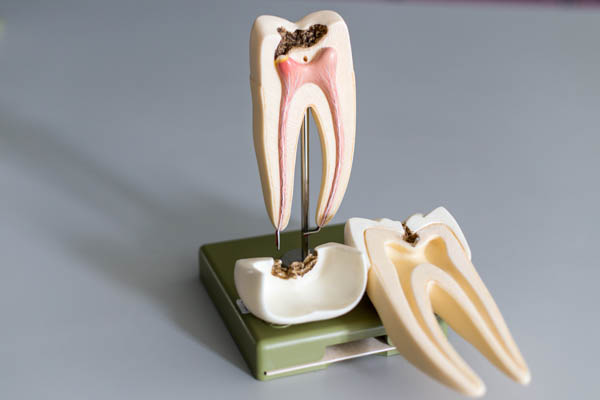The FAQs of Root Canal Treatment

Getting a root canal is a frightening event for some people. Of all the work dentists can do for you and your oral health, this one is among the procedures that cause the most anxiety. If you have fears about this procedure, it is helpful to learn more about it and what happens. As you understand this treatment, you will see how helpful it can be. You can then go into the process feeling more comfortable and at ease.
Avoiding root canal procedures
Maintaining good oral health is critical for a person’s overall wellness. People who want to stay far away from this treatment can do their part to keep their teeth healthy and strong. The most effective way to do this is to brush at least twice a day. Spending enough time brushing properly each day will reduce the risk of cavities and infections. Daily flossing can also minimize a person’s chances of getting cavities and gum disease. Seeing the dentist at least twice a year will also promote good health.
Why do dentists do root canals?
Regular dental appointments focus on preventive measures, such as cleaning teeth and examining the patient to identify problems. The dentist will also treat patients who have issues such as decay and disease in the mouth. When a person has an infection in the tooth or severe decay, a filling may not be enough to correct the condition. A root canal removes the decay or infection, cleans out the tooth, and prevents further spreading of these issues.
What happens in a root canal treatment?
For some people, hearing the term “root canal” is enough to make them nervous. But many people do not even understand what takes place with this procedure. To perform one, the dentist will first take X-rays to confirm the presence of decay or infections. Then, the dentist prepares the person for the procedure, beginning with numbing the patient with a local anesthetic.
The dentist then places a rubber dam in the tooth to keep it dry. After drilling into the tooth, the dentist reaches the pulp, a chamber that houses vessels and nerves. The dentist removes this and cleans and flushes the canals. Medication may also be used to treat the infection. The dentist will then seal the tooth and cover it with a crown.
Is it painful?
Root canals have a reputation for being painful and uncomfortable. In reality, the procedure has little pain. The use of anesthesia will make the patient comfortable during the process. There can be some discomfort for a few hours after the treatment.
How effective is it?
A root canal is a good way to treat infections and decay. The tooth may be sensitive for a few days afterward. The process is successful and should relieve any pain the person had. The crown covering the tooth will be natural-looking and durable.
Nothing to fear
Do not put off a visit to the dentist’s office because you are worried about a root canal. The pain of having a large cavity or an abscessed tooth is more significant than anything you will experience in the dental chair. Make an appointment today. You can have the relief you need in your tooth.
Request an appointment here: https://landmarkdentalnashua.com or call Landmark Dental Care at (603) 882-7312 for an appointment in our Nashua office.
Check out what others are saying about our dental services on Yelp: Root Canal Treatment in Nashua, NH.
Recent Posts
Root canal treatment is typically recommended as a last resort to save a severely damaged, infected, or decayed tooth. It is often a necessity when a tooth has a damaged pulp. The pulp refers to the soft tissues inside a tooth, which are stored in the pulp chamber, the innermost layer of a tooth.When a…
When you are experiencing pain due to the inflammation or infection of the tooth pulp, the dentist will usually recommend a root canal treatment. It is an effective treatment to eliminate pain, save the tooth and restore functionality. At the dental office, the dentist will do their best to ensure a pain-free treatment and keep…
Dental emergencies can happen anywhere and at any time, so it is beneficial to have an emergency dentist. You should find a dentist before the need arises. Experiencing any dental emergency is bad enough without having to prolong the suffering and pain while looking for a dentist. No one wants to be in a position…
Do you know when to visit an emergency dentist instead of your regular care provider? In the event of a dental emergency, seeing your regular dentist may come at a high cost.Many dentists are not available on an emergency basis after hours. While most injuries can wait a day or so, there are some that…


